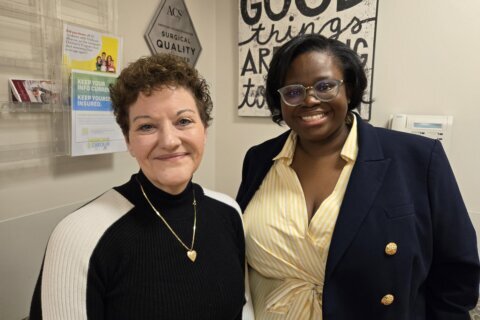If you’re 65 or older, the big three vaccines are for influenza, pneumonia and shingles — conditions that can put you in the hospital and make life miserable. You can be vaccinated against flu in a variety of locations, from doctors’ offices and pharmacies to senior centers and health fairs. Pharmacists can now administer vaccines for pneumonia and shingles in every state, with some restrictions depending on the type of vaccine and whether prescriptions are needed. With convenient access and costs covered by Medicare, getting protected is a no-brainer.
Fight Flu
Certain groups — including seniors — are more vulnerable to severe complications from flu that can lead to hospitalization and in some cases, death. People over 65 account for half of all hospitalizations for flu, according to the Centers for Disease Control and Prevention. During the last flu season, seniors had a record number of flu-related hospitalizations. Flu vaccines are the first and best line of defense, experts say.
The good news is that this year’s updated vaccine is a better match than last year’s vaccine for circulating flu viruses, according to Dr. William Schaffner, a professor of preventive medicine and infectious diseases at Vanderbilt University School of Medicine.
With awareness of their increased risk, more seniors are getting flu shots, according to the latest CDC figures. In the 2014-2015 flu season, about 67 percent of seniors had flu vaccinations, compared with a 47 percent rate for the general public.
For seniors who do get sick with flu, the CDC recommends influenza antiviral drugs such as Tamiflu or Relenza. These prescription medicines are a second line of defense to reduce flu symptoms and prevent serious complications. It’s important to start antivirals quickly. If you experience flu symptoms, such as sudden fever, aches, chills, sore throat, runny nose, muscle aches and tiredness, contact your health care provider immediately.
Prevent Pneumonia
Two vaccines protect seniors against pneumococcal disease, which includes pneumonia, meningitis and sepsis. Nearly 1 million people get pneumococcal pneumonia every year in the U.S., and up to 7 percent of them die, according to the National Foundation for Infectious Diseases. While pneumonia is more common, meningitis and sepsis are more deadly. Experts recommend pneumococcal vaccination for everyone 65 and older.
With two types of vaccines involved, pneumonia prevention is slightly more complicated. Available pneumococcal vaccines are conjugate vaccine (or PCV13) and polysaccharide vaccine (PPSV23).
“Ask your health care provider which vaccine you need to protect yourself against pneumococcal disease,” says Schaffner, who is also the medical director for NFID. “These vaccines work.” He points to a new study in the March issue of the New England Journal of Medicine, which included nearly 85,000 people age 65 and older. Researchers found a significant reduction in pneumococcal pneumonia among seniors vaccinated with PCV13.
Timing is an issue: The two vaccine types are given at least a year apart. Having both vaccines provides better protection, and both are covered by Medicare. Your health care provider can determine which pneumonia vaccine you need and when.
Go ahead and get the pneumonia vaccine at the same time you receive your flu shot, recommends Barbara Resnick, a professor of nursing at the University of Maryland School of Nursing and an adjunct professor with the UM School of Medicine’s department of epidemiology and preventive medicine.
“The most important thing is to do it. These vaccines are available; they’re prevention, and there’s no need to be fearful,” says Resnick, who also works with the National Adult Vaccination Program of the Gerontological Society of America.
Some seniors insist that pneumonia isn’t a big deal for them. “The problem is, for older adults who don’t get vaccinated — they’re actually putting the rest of the world at risk,” Resnick says. “Even their grandchildren if they come and visit. Because they can spread things.” What she calls the “cohorting effect,” or herd immunity, means that by getting vaccinated, you protect others too.
You cannot get diseases such as flu or pneumonia from the vaccines used to prevent them, Resnick emphasizes. As with other vaccines, there is a risk of having an allergic reaction, although it’s rare. “Some people have a little localized soreness and redness,” she notes. “Some people can have low-grade fever or even feel achy.” But overall, she says, side effects are minimal.
“This is the insurance you need to do for yourselves for the coming year,” Resnick says. “Just take it a year at a time and bite the bullet. Get the shot, get it over with, and you will be protected in the best way we can protect you.”
Stave Off Shingles
Herpes zoster, the virus that causes chickenpox in kids, can lead to shingles in older adults. Shingles involves rashes, blisters and scabbing on the face or body, and outbreaks are notorious for excruciating pain. About one in 10 shingles patients develops a condition called post-herpetic neuralgia, in which pain can persist for months or years.
While no cure exists for shingles, there is a vaccine to prevent it. It’s recommended for adults over 60, unless they have a weakened immune system, certain types of cancer or other conditions, or if they have specific allergies. Ask your doctor if you should be immunized.
“Zoster is the gift that keeps on giving,” says Resnick, who strongly recommends the shingles vaccine for seniors. “To me, it’s worth the investment.”
Check Booster Status
Talk to your health care provider about which booster vaccinations, if any, are right for you. Whether a vaccination is appropriate depends on several factors, including previous reactions and certain medical conditions you may have had.
The Tdap vaccine protects against tetanus (lockjaw), diphtheria and pertussis (whooping cough). The Advisory Committee on Immunization Practices recommends Tdap for all adults age 65 and older.
Whooping cough, a respiratory infection involving a harsh, racking cough, is making a comeback with recent U.S. outbreaks. Highly contagious, it’s especially serious and sometimes deadly for babies under 1 year old. Among vaccines, Resnick says, Tdap is particularly important for seniors to also protect young grandchildren.
More from U.S. News
Behind the Window: What Pharmacists Do
How to Help Aging Parents Manage Medications
Healthy Aging: Vaccines You Need Now originally appeared on usnews.com







